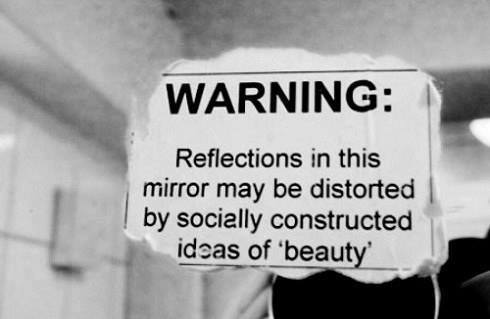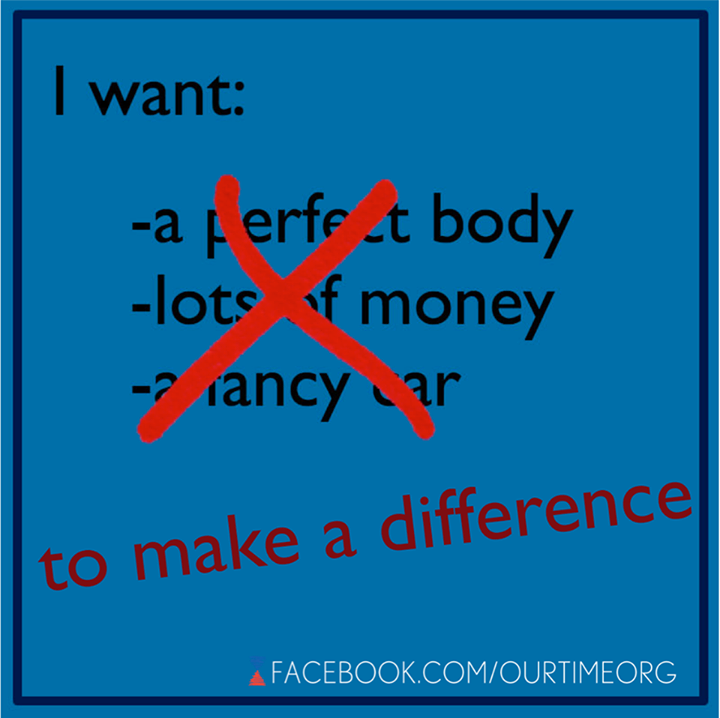The Reasons You Can't Stand Kim Kardashian
By:
There’s something about Kim. Not that starting an argument on the internet is difficult, but if you’d like to get there as quickly as possible, bring the Kardashian family into a discussion- any discussion. Allege that Kim is “famous for doing nothing” or point to her vast business empire as evidence of her capability. Call her any number of names or imbue her with any number of gifts, and you’ll find someone to disagree with you. It is well-established that the vitriol inspired by Kim Kardashian is unmatched in its ubiquity and intensity, but that’s ironic given that Kim doesn’t really represent much of anything. She doesn’t campaign for women’s rights, or take a stance on drone warfare, or engage with the world in any meaningful sort of way. She doesn’t create art or indulge in social commentary. She’s just sort of….there. Existing, consuming, perfecting herself. Wearing nice things and murmuring inoffensive nonsense. So what is it about Kim Kardashian that we just can’t stand?

The easy answer would be, “well she doesn’t do much, yet somehow she is staggeringly successful.” But I think to better understand the widespread resentment of her and her family, we have to dig into that statement a little. How do we define “success” in this country, socially and personally? I would say, broadly: money, prestige, fame, professional accomplishment, attractiveness, stylishness. Yes, family and friends are important, but money and things, nice cars, clothes and homes, are what we are consistently taught to aspire to from birth. They are the measure of your social worth; you can have a large and loving family, but, to the general public, that doesn’t carry the same weight as a flashy business card with the right title printed on it or a Playboy Bunny body. Material goods and superficial accomplishment are what we are encouraged to pursue every time we open a magazine or turn on the TV. They are what we attempt to show off in our social media profiles, our selfies and our statuses and our unabashed documentation of any luxury we can place ourselves adjacent to.
What does it mean that our definition of success is, at its core, quite superficial? It means that someone like Kim can be one of the most successful people in the country. Kim, a near-perfect human embodiment of the values we’ve been taught to aspire to, has beautiful clothes and sprawling mansions. She drives overpriced cars and spends an inordinate amount of time on her physical appearance. She documents her lovely face and closely monitored body for public consumption in real time. And when you add up the clothes and the houses and the face and the body, she seems to have no excess time or energy to expend on anything outside of herself.
Yet she is, by every metric of the society we live in, a successful person. That is, in a word, frustrating. It’s also, perhaps, illuminating in a way that is not entirely pleasant for people. After all, what does it mean if we live in a society where someone like Kim Kardashian is admired, known, followed rabidly on Instagram, photographed by our media? Kim Kardashian is holding a mirror up to all of us, and we don’t like what we see. She’s a celebrity representative of our era, our priorities. She doesn’t have to do anything or be anyone; she just needs to stay rich and look beautiful. And seeing our culture reflected back at us, our presumptive values being lived out so plainly, we’re disgusted.

Anyone who’s watched even an episode of Keeping Up with the Kardashians will have discerned that Kim is vapid and boring. But by our shallow standards of social hierarchy, she is unassailable. Calling her “boring” carries limited weight in a country where personality, especially among women, carries only marginal importance in the face of overwhelming good looks; calling her “shallow” is almost a compliment in a society where materialism is encouraged.
The only insults which come close to carrying any sort of weight vis-a-vis Kim’s success are misogynistic references to her sexual past and appearance. Because boring and shallow are such irrelevant critiques of character in an environment which rewards those very qualities, the most vocal haters of Kim often refer to her as a “whore”, continually bringing up her now infamous sex tape with Ray J, and others rather ridiculously suggest that Kim is actually “ugly” or “fat”. What does it say about us that the far more relevant charges of selfishness and greed are less employed than criticism of her body and what she does with it? That calling someone “fat” is just plain meaner than calling someone “boring”? Having sex, enjoying sex as a woman, being unattractive or overweight, all of these qualities are crimes in our culture and yet, divorced from their social context, none of them indicate poor character. Yet Kim is hardly lacking in the qualities that do; obsession with self, ostensible disinterest in understanding world events or creating positive change, seemingly infinite thirst for wealth, seemingly infinite obsession with material goods.
The problem with Kim Kardashian’s pursuits, which echo those of the country at large, is that there is no finish line. The need for more money, more stuff, more physical beauty, they are bottomless, they are infinite. Striving to have “enough” is pointless. Even as more is acquired, more is desired; even as more is achieved, more is needed. Materialism and superficiality are empty pursuits which ultimately consume the consumer alive, leaving nothing but a bottomless pit of want. Deep down, we are all aware of this, but Kim is like a walking reminder. “Do I really need a new car?”, “Should I be giving up time with my family to advance my career?”, “Will I be happier when I have more money?” I don’t think Kim’s presence encourages us to ask ourselves these questions consciously, but I do think her fame hits the deep nerve where those repressed doubts dwell. “Am I sure this is a worthwhile way to live?”
There’s an element of cognitive dissonance to all this. If you’re raised to believe that wealth implies capability, that success implies intelligence, Kim is a sort of human slap in the face. What do your achievements mean if Kim Kardashian can best them? If, after a lifetime of heady accumulation, your pile of stuff is doomed to be ever smaller than hers? She quite handily calls into questions all of the assumptions we’ve grown up on with her mere presence. Maybe the rich aren’t better than everyone else; maybe they aren’t harder working or more deserving. Her very existence is, in that sense, offensive. She’s a living, breathing rebuttal to classist propaganda that characterizes the wealthy as somehow “better than” and the poor as deserving of disdain. Even if you aren’t currently wealthy, most Americans aspire to wealth, identifying with and deifying the wealthy. As John Steinbeck famously said of our culture, “Socialism never took root in America because the poor see themselves not as an exploited proletariat but as temporarily embarrassed millionaires.” If Kim Kardashian is the epitome of success in America, isn’t success sort of empty and pointless? Doesn’t it mean you can climb to the top knowing little, accomplishing little, signifying little?
Kim Kardashian isn’t the root of our social problems, she’s merely an outgrowth of them. We all participate in creating a culture that rewards the Kims of the world, and, to paraphrase Gandhi, we must be the change we wish to see in the Kardashians. We must address our own doubts and needs and misguided priorities in order to create that change. We can’t make Kim less obsessed with herself but we can become less obsessed with ourselves. We can’t make Kim a force for social justice but we can engage with our own community. We can’t get Kim to stop buying racks of designer clothes, but we can ask ourselves what it is we’re really searching for when we shop. And no, we can’t educate Kim about events in the Middle East but we can go out and buy books about US involvement in Iraq and Afghanistan instead of watching reality TV. (Personally, I recommend Assassin’s Gate by George Packer and Descent into Chaos by Ahmed Rashid.

Don’t mistake me for self-righteous; I don’t claim to be “above” or somehow outside of the cultural forces that push us to pursue wealth, beauty and fame. No one can claim to be immune to that pressure; its presence is a thread running through our every interaction, every decision. These things aren’t a zero-sum game; it’s not “people who are like Kim” versus “people who are not like Kim”. It’s a spectrum on which all of us fall, where all of us fail to one degree or another. I, too, love to go shopping and buy myself nice new whatever. I post pictures of myself on social media, and I watch reality TV, and I place myself adjacent to luxurious things. But I am also aware that the more I indulge in self-obsession, the worse I will feel. I am aware that it is not enough to accept the values chosen for me by marketers; I am aware that creating new values requires not only awareness, but work. It’s not enough to know we want something else. We have to build it from nothing, painstakingly, day by day, in a million small ways, with a million small choices. Living a life that is larger than materialism and superficiality is something most people are attempting to do, to some degree, in some forum, but all of us can do more. Because in this place and time, Kim Kardashian is doing “better” in life than you are doing. I believe we need to revise our definition of “better”.
I don’t think Kim Kardashian is an evil person; more like a stark example of someone who fell into the trap of materialism and is fully caught. She is a lovely bird in a gilded cage. Someone whose self-worth is so entangled with her looks and possessions, one might reasonably ask what else there is to her. Someone who, day by day, will get older, and day by day, will see her carefully crafted looks fail and fall away, turning age from a proud evolution to a fearful curse. Necessarily, when superficial concerns are primary, continuing to live becomes more and more distasteful; the physical toll of age far outweighs the wisdom of years well spent. Even as we are encouraged to aspire to wealth and beauty, even as we capitulate and spend our time and energy in their pursuit, deep down we want something more. We want to turn on the TV and see people who are interesting and vivid, engaged and engaging. We want to look in mirrors and feel accomplished and sure, not fading and insecure. We want to be more than an enviable job title, and a picture with a celebrity, and a large, cold diamond ring, and a beautifully appointed kitchen. We want to understand our world better, to do more and be more. We want Kim Kardashian, with all her money and beauty and glamour, to be the sort of person we sigh and shake our heads over, thinking sadly to ourselves, “I hope things get better for her.”
